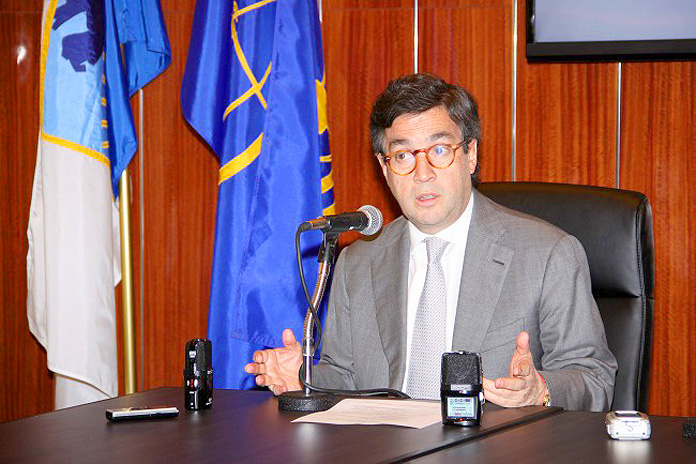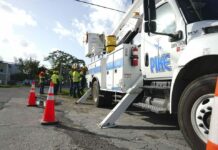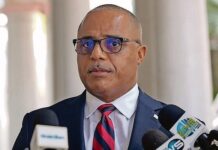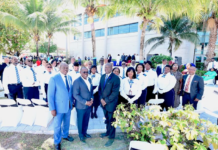
NASSAU, The Bahamas – The Inter-American Development Bank will continue to foster its relationship with The Commonwealth of the Bahamas, established almost 40 years ago. And according to IDB President Luis Alberto Moreno, there would be no graduating of Member Countries like The Bahamas, which is often considered “too developed for IDB funding.”
His remarks came during a ‘Meet the Press’ session, in the context of the 57th Annual Meeting of the Board of Governors of the Inter-American Development Bank and the 31st Annual Meeting of the Board of Governors of the Inter-American Investment Corporation on Thursday, April 7, 2016.
The joint meeting is being held at the Baha Mar Convention Centre. It provides a forum for discussion among the institution’s Governors, including finance ministers and central bank presidents, and representatives of multilateral financial institutions, development agencies and private banks.
This is the first time the IDB is meeting in a Caribbean country, since it last meet in Jamaica in 1979.
The IDB is the largest multilateral development bank operating in The Bahamas, which joined since 1977.
The IDB currently has a portfolio of loans to The Bahamas in the amount of $253 million; about 90 percent earmarked for infrastructure like airports, roads, and renewable energy. It also has a portfolio of grants in the amount of $7million to support a sustainability project on Andros Island, and the National Development Plan.
On Thursday, the Government of The Bahamas and the IDB signed a Citizens Security Loan agreement for $20 million and a Public Financial Management Loan agreement for $33 million. The IDB would also be approving close to $60 million for Youth Apprenticeship Programmes and for Airport Infrastructure in the Family Islands.
“Before we do any loan, we create a results frame work. In essence, we determine the outcomes we would like to see as a result of the investment the country is doing with the lending that we provide,” said Mr. Moreno.
He further explained: “Not every time you meet those expectations for a variety of reasons as you know — a development is not an exact science. What we worry about of course, is transparency — the way loans are executed, how they are developing the loans and more importantly, there would be are times we find the loans are in trouble or we see what the challenges are. We are constantly asking that question ourselves because we know that countries have scarce resources and those resources have to be put to the best use.”
Regarding the graduating of Members Countries, Mr. Moreno said that has been a discussion amongst the majority of IDB shareholders, who decided that would not be done: “That regardless of the income per capita in a country, there are always pockets of poverty to be dealt with and we will continue working with The Bahamas as we have doing in the past. We have a strong presence here in The Bahamas,” he said.
Also, The Bahamas’ debt to GDP ratio when compared to other Caribbean countries is not a concern for the IDB.
“We feel comfortable about having a very strong dialogue with the government about all aspects of its economy and about supporting the country in terms of what else can be done to strengthen its fiscal situation,” said Maria Florencia Attademo-Hirt, IDB Representative, Country Office Bahamas.
Regarding the landfill, she said there is room for improvement in the solid waste management in the country.
“There is room for improvement. There is room for awareness. There is room for further reduction in terms of what solid waste management means and what it means if it is not done properly,” she said.
According to Mrs. Attademo-Hirt, “There is a possibility for impactful development outcomes in the solid waste management area; and the IDB has expertise to offer in this area.”









